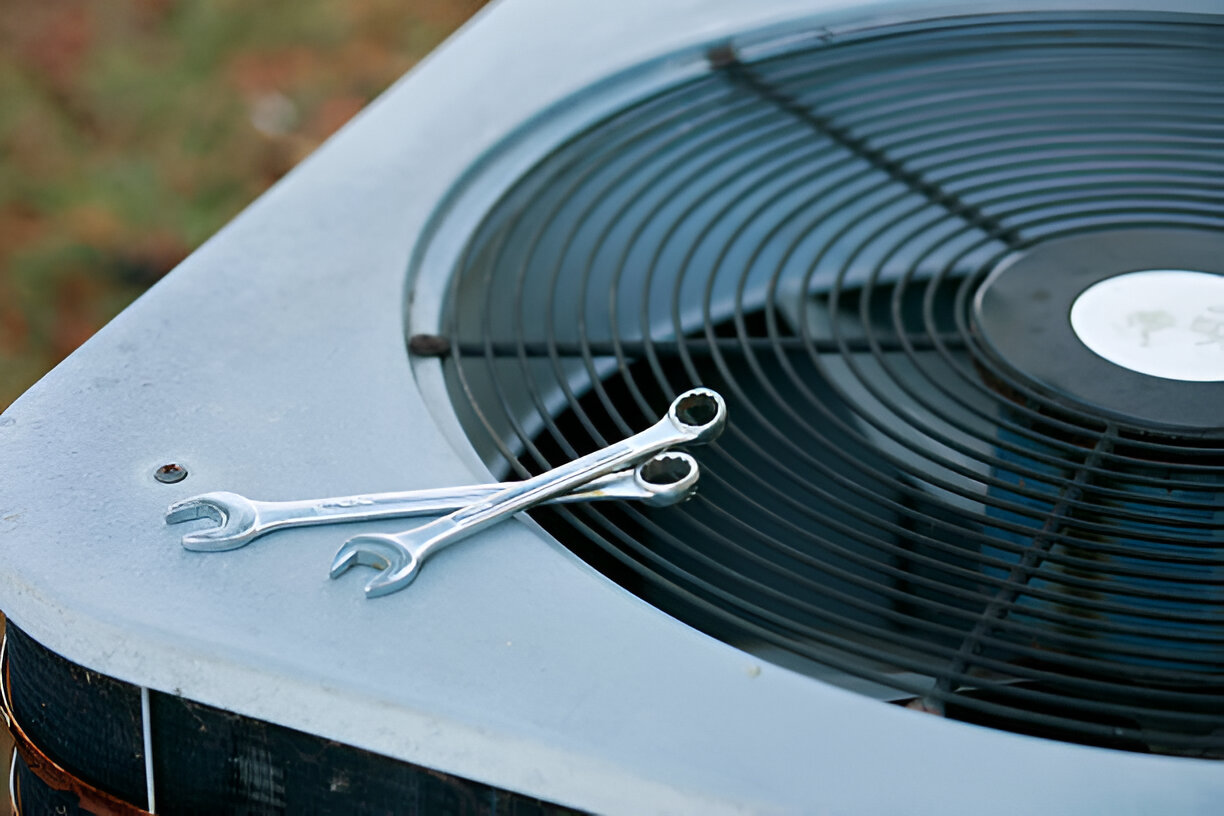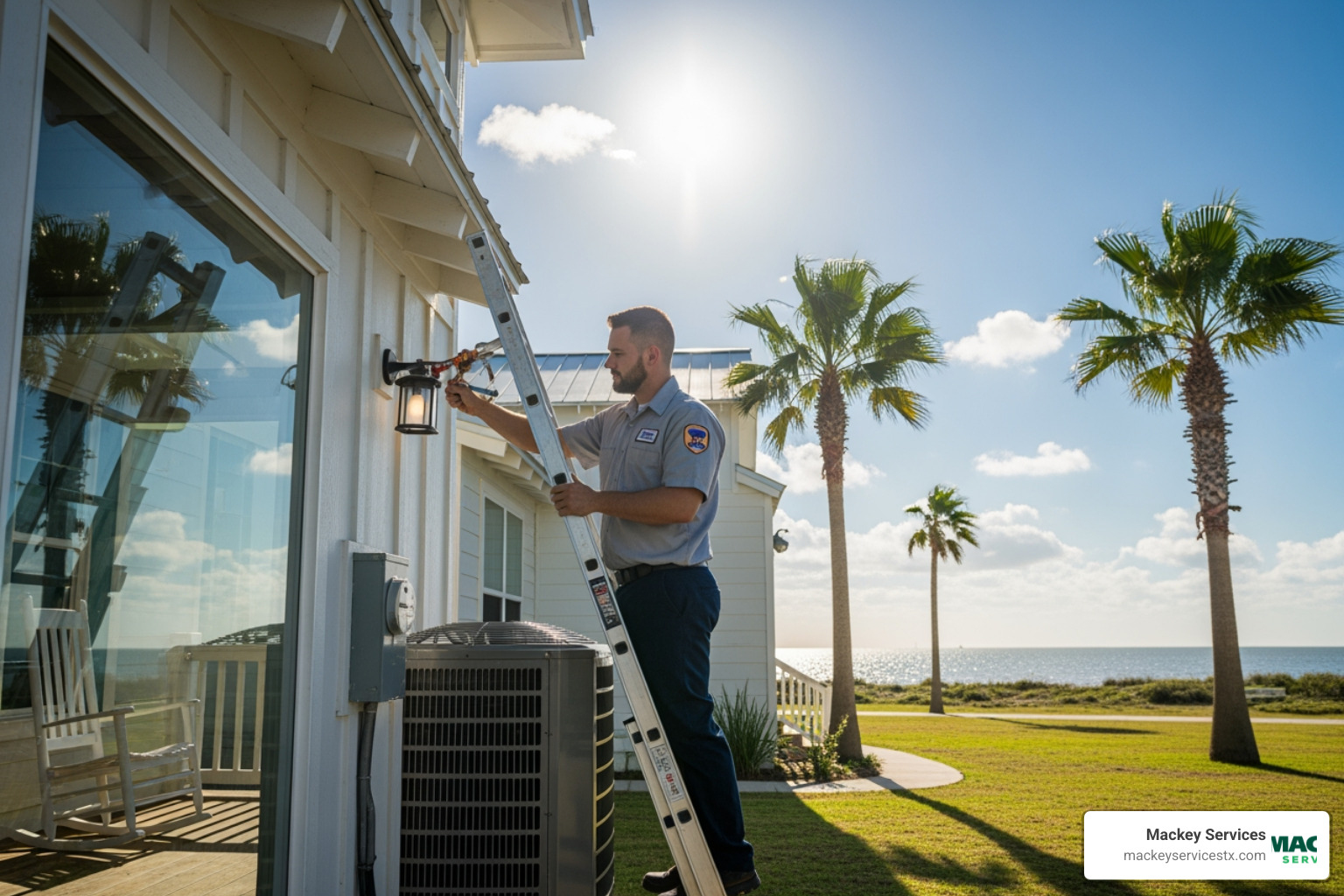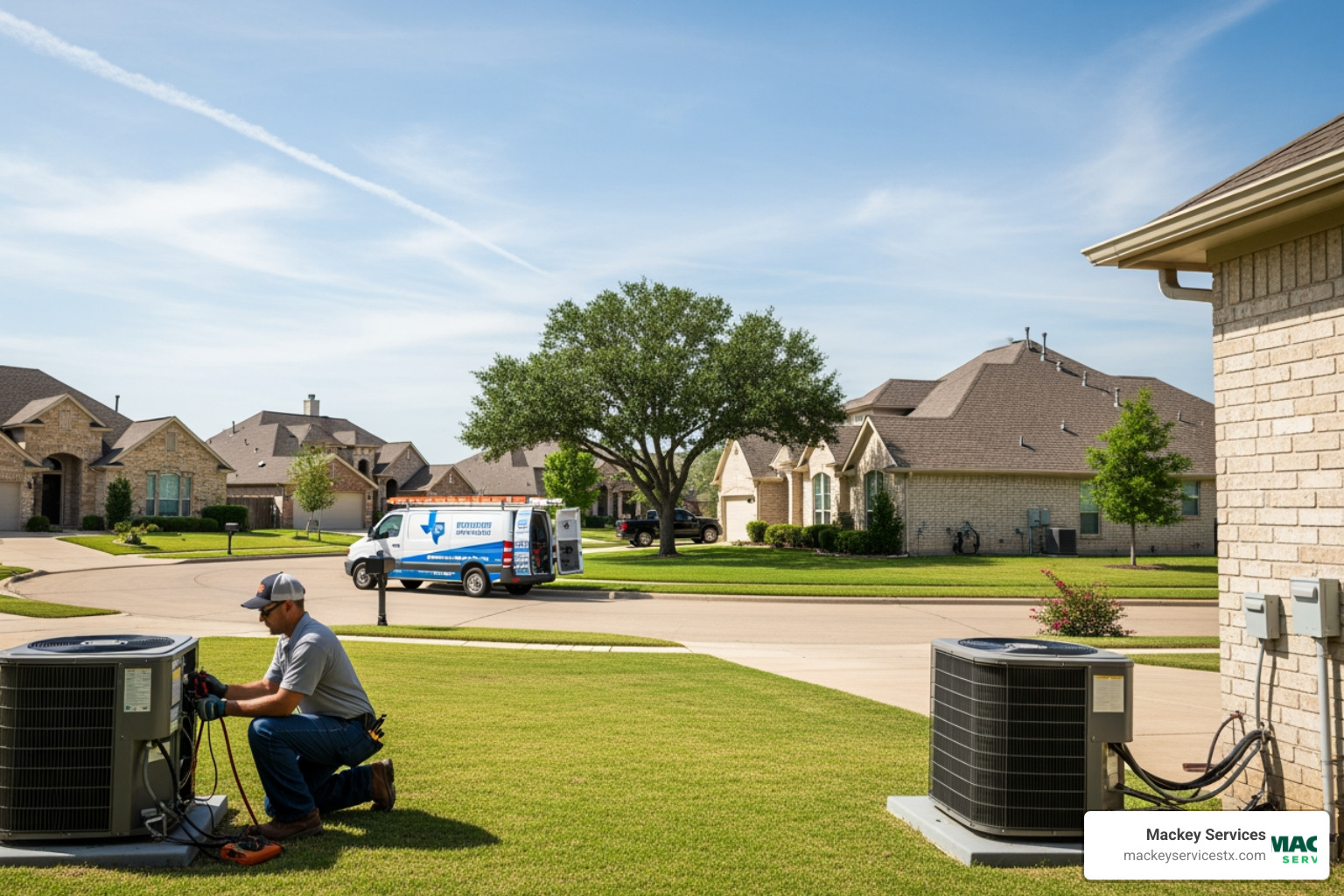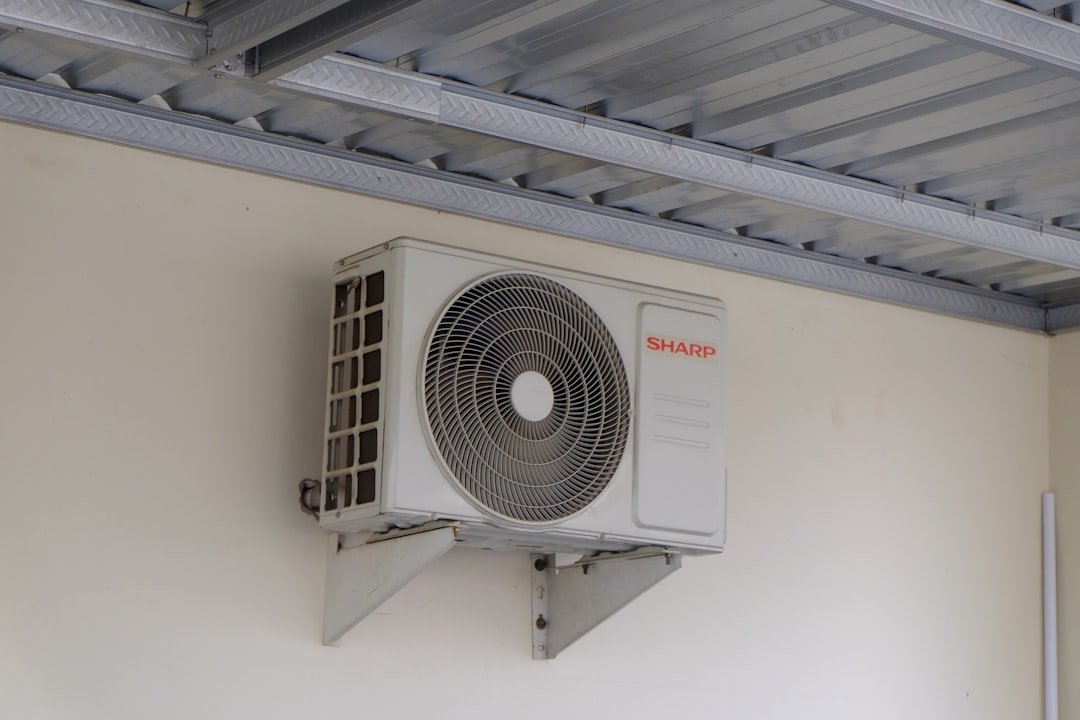Signs Your HVAC Air Compressor Needs Repair
.jpg)

Here in Houston, Texas, maintaining a consistently comfortable indoor living environment requires a dependable heating and cooling solution. Your HVAC system’s compressor unit helps you accomplish this. Recognizing the signs of a struggling compressor can help you avoid disruptions. Here’s our list of 10 symptoms that tell you your HVAC air compressor needs attention.
1. Your HVAC Isn’t Completely Cooling Your Home
A malfunctioning compressor won’t circulate refrigerant as intended, causing the system to blow lukewarm air. When this happens, your system may run nonstop while it tries to reach the temperature range on your thermostat.
You may not notice this issue until a significant temperature change becomes evident. A failing compressor can lead to a full system replacement or costly emergency repairs.
2. Strange Noises Emitting From Your HVAC System
Grinding, clanging, or growling noises are all potential indicators that something is wrong with your unit. These sounds frequently come from internal air components that are loose, bent or failing. This requires a professional diagnostic inspection.
Poorly maintained serviced components are among the leading causes of HVAC system failures. Ignoring these unusual noises for too long can exacerbate any existing damage or lead to a catastrophic breakdown that requires a full replacement of the compressor or the entire HVAC unit.
3. Your Circuit Breakers Trip Often
If you’ve noticed you’re constantly resetting circuit breakers, this could signal a faulty air compressor. Malfunctioning compressors draw excessive power from your household supply, stressing your home’s electrical system. The purpose of these breakers is to prevent electrical fires and other hazards that can occur after an overload.
Repeated circuit breaker tripping could be a sign that your air compressor is struggling and its internal components need intervention or replacement. Letting this issue go for an extended time is unhealthy for your HVAC system and can introduce several safety risks to your home’s electrical infrastructure.
4. Unexpected Spikes in Your Energy Expenses
Unusually high energy costs could mean your air compressor is working overtime. This increased energy draw might also indicate an inefficient HVAC system with a faulty compressor. Scheduling a maintenance appointment to have a heating and cooling specialist inspect your HVAC can quickly rule out whether or not the system is using more energy than it should. If there are issues with the unit, one of our experienced technicians can often make the necessary repairs during the initial appointment.
5. You Notice Refrigerant Leaks
If you see puddles or oily spots near your HVAC unit, you likely have a refrigerant leak. This issue frequently points to a malfunctioning air compressor. Your HVAC system’s air compressor needs refrigerant to complete its cooling process.
Any indication of a leak could mean the unit isn’t performing as efficiently as it should. Even small refrigerant leaks can reduce HVAC performance by as much as 20%. Leaving this issue unchecked will presumably escalate your HVAC performance problems.
6. Uneven Temperature Zoning
Inconsistent and uneven cooling across different areas of your home frequently indicates an improperly functioning HVAC air compressor unit. When this part can’t uniformly distribute climate-controlled air throughout your indoor living environment, your HVAC system will constantly find itself strained to provide the desired air temperatures.
Uneven zoning issues can be traced to several other common HVAC issues, as well, however. This can entail anything from improperly sized units and blocked vent supplies to leaky ducts and clogged filters. If you’re observing inconsistent cooling in your home when you previously haven’t, we encourage you to contact our team at Mackey Services to schedule an HVAC inspection. This way, we can rule out any air compressor issues.
7. Frozen Evaporator Coils
Ice buildup on your HVAC is likely the result of an overworked compressor that isn’t cycling correctly. When this happens, the ice starts restricting the system’s airflow and reduces its ability to perform. Frozen coils frequently result in compressor unit failures, one of the most costly HVAC repairs you can face.
Leaky refrigerant from a failing HVAC compressor can also contribute to the same issue. Without sufficient refrigerant, the molecules in the system over-expand and escalate a cooling effect that causes your system to overwork. The freezing sections eventually find their way across the coils where they become iced over and damage your compressor.
8. Your HVAC System Is Overheating
When inspecting your HVAC systems for signs of trouble, check for exterior parts that feel excessively hot. This is often a sign that the air compressor is overheating due to a mechanical failure, such as faulty motor windings or insufficient lubricant. Prolonged overheating like this will eventually strain the compressor’s internal components to a point where they need repair or replacement.
An overheating compressor can also trigger your system’s safety sensors, causing the unit to shut down to prevent further damage. If you notice this happening, schedule an HVAC service before operating your heating and cooling system again. We can promptly diagnose the issue and advise on the necessary steps to avoid further damage.
9. Failing Compressor Motor
If your HVAC is struggling to start or it just feels like your AC isn’t fully kicking in, you could have a problem with your HVAC’s compressor motor. This typically happens after your HVAC develops an electrical problem and your motor windings burn out.
When the compressor motor can’t get going, this interrupts the refrigerant cycle and makes it impossible for your HVAC to cool and heat your home to the preferred temperatures. Compressor motor issues are common, and they can easily disrupt your HVAC services and result in expensive repairs.
10. A Short Cycling HVAC System
Short cycling occurs when your HVAC system turns on and off more than usual. Once your HVAC system starts acting up in this manner, a faulty air compressor is frequently the culprit.
This problem can hinder your system’s ability to reach the desired temperatures while overworking the HVAC unit. In many cases, when homeowners fail to address this issue, it can reduce the system’s life expectancy by 50%.
Identifying and Repairing Your HVAC Air Compressor Issues
Whether it’s strange noises coming from your HVAC or you’re receiving uncharacteristically high energy bills, you’ll want to take action before these symptoms lead to more expensive repairs. Knowing how to spot these early warning signs of a failing air compressor unit can undoubtedly help save you a lot of time and money.
We at Mackey Services can assist in diagnosing your HVAC problems. We have decades of valuable experience repairing and replacing faulty air compressors and aging HVAC systems in the Houston area. We also furnish countless homeowners in the region with a full spectrum of expert electrical and landscaping services.
For more on how our diagnostic inspections can help prevent minor HVAC issues from turning into expensive repairs or to schedule a service, contact us at Mackey Services today!
Greg Gilbert Greg Gilbert is the Project Manager for Mackey Services.
Clients Say About Us
Customer Testimonials
Our AC stopped working during a heatwave, but your team responded quickly and restored comfort within hours. Professional, friendly, and highly recommended!



Service Finance
Enjoy a new HVAC system today with flexible financing through Service Finance. Convenient monthly payment options make it easier to upgrade comfort now and pay over time, subject to credit approval.




